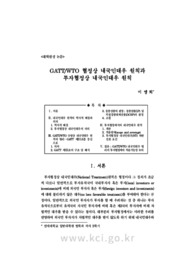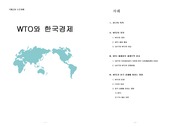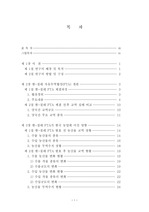

-
미리보기
서지정보
· 발행기관 : 연세대학교 법학연구원
· 수록지 정보 : 법학연구 / 20권 / 1호 / 351 ~ 395페이지
· 저자명 : 이영희
초록
일반적으로 외국인 투자자가 투자를 할 때 우려하는 것 중 하나는 투자유치국으로부터 유치국의 자국민 투자자 혹은 제3국의 투자자에 비해 불리한 대우를 받을 수 있다는 점이다. 이러한 우려를 반영하여 대부분의 투자협정에서는 내국민대우(National Treatment)원칙과 최혜국대우(Most-Favored-Nation Treatment)원칙을 명문화하고 있다. 내국인 투자자와 외국인 투자자의 차별, 즉 ‘종적 차별’을금지하는 내국민대우 원칙은 국제무역에 관한 규범인 GATT/WTO에 비해 투자협정에서 일관된 법리가 상대적으로 덜 축적되어 있다.
투자협정과 무역규범은 그 용어, 대상, 적용측면에서 많은 차이를 보인다. 그러나 상대적으로 일관된 법리가 축적되어 있는 GATT/WTO 내국민대우의 법리를 분석하고 투자협정의 내국민대우원칙 규정과 관련 판례를 살펴봄으로써 GATT/WTO의 내국민대우 법리를 투자협정과 비교분석하고자 하였다. 투자협정상 내국민대우 위반을 판정하기 위한 1단계는 비교대상인 국내투자자/투자와 외국인투자자/투자가 ‘동일 상황’에 있는가이다. 2단계는 ‘불리한 대우’(less favorable treatment)의 존재이며 3단계는 내국민대우 위반인 투자유치국의 조치를 정당화할 수 있는 예외의 존재여부에 대한 검토이다.
투자협정상 내국민대우 위반과 관련된 중재판례의 태도가 상이하게 나타나나, 대략적인 공통점을 찾아보면 다음과 같다. 첫째, 내국민대우 위반 판정의핵심인 ‘동일 상황’(like circumstances)의 판단에 있어 가장 많이 이용되는 방법은 ‘동일 사업 혹은 산업’기준(the same business or economic sector)이다.
그러나 같은 사업을 영위하더라도 동일 상황에 있지 않다고 판정한 사례가 존재함은 앞서 살펴본 바와 같다. 둘째, 불리한 대우(less favorable treatment)의존재 검토단계에서 다수 중재판례의 입장은 ‘법적 차별’ 뿐만 아니라 ‘사실상 차별’도 포함하는 것이다. ‘차별적 의도’가 내국민대우 위반의 독립적인 검토요건인가에 대해 대다수의 판례는 조치의 ‘의도’가 아닌 ‘영향 혹은 결과’(impact or result)가 결정적인 요건이라는 입장인 것으로 보인다. 셋째, 내국민대우 위반을정당화하는 요건에 대한 검토에 있어서는 협정에서 명시적으로 언급된 예외에해당하는 경우, 투자유치국의 차별적 조치는 정당화 될 수 있다.
주목할 부분은 일부 중재판례에서는 정부의 정당한 정책 목표를 ‘like circumstances’단계에서 고려하여 정당한 정책 목표가 존재할 경우, 동일한 산업에 있는 내외국인 투자자/투자인 경우라도 like circumstances에 있지 않는 것으로 간주하여내국민대우 위반이 성립하지 않는 것으로 판시하였다는 점이다. 이는 GATT/WTO의 내국민대우 위반 판정 시 동종상품 판정단계에서 ‘조치목적설’을 연상하게 한다. ‘정부의 정당한 정책적 목적’은 투자유치국의 조치가 일응 내국민대우 위반을 구성하는 것으로 간주되는 경우 그러한 위반을 정당화하기 위한 단계에서 고려될 수도 있다. GATT/WTO분쟁에서 패널과 상소기구는 ‘조치목적설’이 GATT 제XX조를 형해화 할 수 있다는 점 등을 들어 주로 BTA Approach에따라 ‘사안별 원칙’에 입각하여 ‘동종상품’을 판단하고, ‘정부의 정당한 목적’은주로 제XX조의 일반적 예외에서 판단해 왔다.
GATT/WTO협정과 투자협정은 조약기초자들의 의도, 협정문의 문언, 조약의객체와 목적면에 비추어 볼 때 구별되며, 따라서 GATT/WTO 법리를 그대로투자협정에 적용하기에는 무리가 있다는 것이 다수의 투자중재법원의 태도이다.
그럼에도 불구하고 GATT/WTO의 법리가 투자협정을 해석함에 있어 아무런 의의를 갖지 못하는 것은 아니라고 생각된다. 현재 투자협정상 내국민대우 위반을 판정함에 있어 ‘like circumstance’에 대한 명확하고 일관된 법리가 존재하지아니하며, 중재법원들도 다양한 해석이 가능하고 사안에 따라 고려해야 할 요소들이 달라질 수 있음을 언급하였다. 이를 감안할 때, 외국투자자와 국내투자자가 생산하는 제품이 ‘like product’인지 여부가 외국투자자/투자와 국내투자자/투자가 ‘like circumstances’에 있는지 여부를 판단함에 있어 고려해야 하는 상황을 배제할 수 없다. 물론 ‘like product’로 판정된다고 하여 곧바로 이를 생산하는 외국투자자와 내국투자자가 ‘like circumstances’로 판정되지는 않을 것이다. 다른 고려 요소가 존재할 수 있고 ‘정부정책의 정당한 목적’으로 인해 ‘like circumstances’에 있지 않은 것으로 판단될 수 있기 때문이다.이에 GATT/WTO 법리를 투자협정에 그대로 적용하기에는 무리가 있지만 적어도 내국민대우 위반과 관련하여 like product판정이 ‘like circumstances’의판정에 있어 고려해야 할 요소인 경우 GATT/WTO의 법리가 투자중재법원이결정을 내리는데 유용한 법적 지침의 역할을 할 수 있을 것으로 생각된다.영어초록
What many foreign investors are highly concerned about is the risks of being given less favorable treatment than national investors of host state.
Mindful of this concern, therefore, most international investment agreements (IIA) stipulate National Treatment Clause under which member states shall not give less favorable treatment to foreign investors or investments in like situations(or circumstances) than domestic investors or investments.
Stipulated in the GATT Art. III, National Treatment constitutes one of the core non-discrimination principle along with Most-Favored-Nation Treatment and has coherent and consistent jurisprudence cumulated by Panel and Appellate Body reports. On the contrary, lack of coherent national treatment jurisprudence in IIA is likely to lead to investment disputes between foreign investors and host state. Therefore, a study on GATT/WTO Panel and Appellate Body reports and practices relating to national treatment disputes will help to prevent possible disputes concerning national treatment between foreign investors and host state.
True, IIAs are quite different from international trade agreements in many respects including their wordings, subjects and application. In order to examine whether the host state violates national treatment clause in investment treaty, above all, it is necessary to identify whether domestic investors/investments and foreign investors/investments concerned are situated in ‘like circumstances.’ Second, the existence of less favorable treatment should be established by the claimant. Third, if there are legitimate non-protectionist rationales, the host state should justify differences in treatment.
First, in examining like circumstances, many IIA tribunals have frequently relied on the element of ‘the same business or economic sector’. However,the tribunals have taken inconsistent approaches in determining the appropriate comparator for the purposes of the national treatment analysis.
Some national treatment cases generally illustrates a tendency to narrowly define the comparator (i.e. in Methanex case, the tribunal like in all relevant aspects), while other tribunals compares investments in very different economic sectors that are not in a competitive relationship.
Second, when it comes to the analysis of less favorable treatment, most tribunals state that both de jure and de facto discrimination are prohibited. Moreover, it is said that proof of protectionist or discriminatory intent is neither a necessary nor a sufficient condition for a finding that there has been a breach of national treatment. The analysis focuses on the objective effect of the treatment in question.
Third, an assessment of the host state`s legitimate policy rationale is relevant to the first step of analysis in determining like circumstances and the third step in assessing whether it is possible to justify the host state`s different treatment between foreign and domestic investors/investments.
Considering host state`s regulatory purpose of treatment in the first step in determining like circumstances, which is mostly rejected by many IIA tribunals, is similar to “Aim-and-Effect” approach in assessing ‘likeness’ of domestic and imported goods under GATT Art. III.
Given differences in texts, wording, objects and purposes of GATT and IIAs, it is clear that GATT jurisprudnece should not be uncritically transported into international investment law. In several IIA national treatment cases, however, claimants have relied on Article III, GATT,national treatment and like products jurisprudence to support arguments that investments are in like circumstances. The possibility cannot be excluded completely that there might be cases where ‘like product’ test is one of the important factors to consider in determining ‘like circumstances’.
In that case, GATT national treatment jurisprudence might be useful for a tribunal in assessing whether the goods produced by foreign and domestic investors are ‘like.’ In this respect, GATT national treatment jurisprudence serve as a useful legal guidance for a tribunal to interpret national treatment provision in investment treaty at least when it is relevant.참고자료
· 없음태그
- # 투자보장협정
- # GATT 제III조
- # 내국민대우
- # 동종상품
- # 조치목적설
- # 동종상품(like product)
- # 동일상황(like circumstances)
- # 동일 사업 혹은 산업(the same economic business or sector)
- # 불리한 대우(less favorable treatment)
- # 투자유치국 정부의 정당한 정책목적
- # international investment agreement(IIA)
- # national treatment
- # Like/similar situation or Like circumstances
- # less favorable treatment
- # Legitimate policy goal
- # the same economic business or sector
- # GATT Art. III
- # GATT Art. XX
- # likeness
- # Aim-and-Effect Approach
-
자주묻는질문의 답변을 확인해 주세요

꼭 알아주세요
-
자료의 정보 및 내용의 진실성에 대하여 해피캠퍼스는 보증하지 않으며, 해당 정보 및 게시물 저작권과 기타 법적 책임은 자료 등록자에게 있습니다.
자료 및 게시물 내용의 불법적 이용, 무단 전재∙배포는 금지되어 있습니다.
저작권침해, 명예훼손 등 분쟁 요소 발견 시 고객센터의 저작권침해 신고센터를 이용해 주시기 바랍니다. -
해피캠퍼스는 구매자와 판매자 모두가 만족하는 서비스가 되도록 노력하고 있으며, 아래의 4가지 자료환불 조건을 꼭 확인해주시기 바랍니다.
파일오류 중복자료 저작권 없음 설명과 실제 내용 불일치 파일의 다운로드가 제대로 되지 않거나 파일형식에 맞는 프로그램으로 정상 작동하지 않는 경우 다른 자료와 70% 이상 내용이 일치하는 경우 (중복임을 확인할 수 있는 근거 필요함) 인터넷의 다른 사이트, 연구기관, 학교, 서적 등의 자료를 도용한 경우 자료의 설명과 실제 자료의 내용이 일치하지 않는 경우
“법학연구”의 다른 논문도 확인해 보세요!
-
개성공단 투자보장과 분쟁해결절차의 법적 문제점과 개선방안 24 페이지
개성공단은 남북 분단의 접경지역에 위치하고 있고, 전체 인구의 과반수가집중된 수도권 지역이 가까이 있다는 점에서 남한기업과 외국인기업의 투자를유치할 수 있는 좋은 지리적 조건을 갖추고 있다고 볼 수 있다. 그러나 다른한편 북한은 중국, 베트남 등 투자유치에 진력하고 있는 경쟁 국가들에 비해내부자본의 축적이 크게 부족하고 정치ㆍ경제적 안정성, 외국인 투자기업.. -
헌법 제22조 제2항 연구 54 페이지
이 글은 헌법 제22조 제2항 “저작자ㆍ발명가ㆍ과학기술자와 예술가의 권리는법률로써 보호한다”는 규정의 의미를 탐구하는 것을 목적으로 한다. 이러한 목적을 달성하기 위하여 먼저 이 규정의 개정사를 살펴보고, 미국, 독일, 일본 등각 국 헌법을 비교헌법론적 시각에서 살펴보았다(Ⅱ). 그리고 제22조 제2항에서사용된 헌법상 용어를 분석하며 이 규정의 구성요건을 .. -
세법상 가산세에 대한 ‘정당한 사유’ 판단기준에 대한 연구 36 페이지
세법상 가산세에 대한 정당한 사유의 판단은 납세의무자에게 다소 불리하게적용되어 왔는데, 이는 과세관청에 비해 비전문가인 납세의무자에게 세법 해석에 대해 무거운 주의의무를 요구하는 결과에 이르렀다. 그러나 현재의 납세 환경에서 대법원과 같이 가산세의 면제사유를 엄격하게 해석하는 관행은 과세관청의 입장에 치우친 것으로서 합리성이 떨어진다고 볼 수 있겠다. 대법.. -
日本保險法上 保險契約解除에 관한 硏究 26 페이지
일본은 최근 보험법(2008년 6월 6일 공포, 平成 20년 법률 제56호)의 제정을통하여 보험계약의 해제를 위한 새로운 제도를 신설함과 동시에 법제도를 정비하였다. 일본보험법의 기본방침은 보험계약에 대한 보험자측에서의 해제는 자유롭게 하는 반면에 보험자측에서의 해제는 보험법에 규정된 사항과 요건을 갖추는 경우에만 제한적으로 인정하고 있다. 이처럼 보험자에.. -
‘실제 속의 법’ 관념을 중심으로 본 현실주의 법이론의 변천 42 페이지
법현실에 주안점을 두어 기존 법이론들의 문제점을 지적하고 현실부합적 법이론을 전개하고자 하는 현실주의 법이론의 경우, 그 내적 발전에 있어서 일견자신의 중요 인식관심을 형성하는 법현실로부터의 응전은 크지 않을 듯 보인다. 하지만 법현실주의의 중요연구를 차지하는 바, 사법판단의 실제 과정에 관한분석 그리고 제정된 법이 사회에서 실제 어떻게 작동되는지에 관한 ..
찾으시던 자료가 아닌가요?
지금 보는 자료와 연관되어 있어요!
문서 초안을 생성해주는 EasyAI





